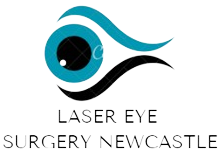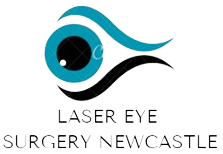Are you contemplating laser eye surgery but uncertain if you qualify? We provide a comprehensive overview of the necessary criteria for eligibility, containing components such as age, eye health, and past surgical history.
Learn how specific vision issues like astigmatism, myopia, and hyperopia influence eligibility and how lifestyle choices and existing medical conditions play critical roles.
We’ll also examine the risks, benefits, and alternative options available if laser surgery isn’t suitable.
Also, we outline what to discuss during a consultation with your eye doctor to ensure a well-informed decision.
This exploration prepares you for the possibility of surgery. It equips you with knowledge about preparing effectively, assessing risks, and exploring alternatives to achieve optimal vision.
What are the general requirements for eligibility for laser eye surgery?
Eligibility for laser eye surgery is determined through a detailed consultation, where the ophthalmologist evaluates the patient’s eye health, including the cornea and retina.
Essential criteria include being 18 years old and having a stable prescription for at least one year. This ensures the patient’s eyes are suitable for successful vision correction using advanced laser technology.
The specialist customises a personalised treatment plan, considering each patient’s unique characteristics. This systematic evaluation of age and eye health naturally transitions into their specific impact on surgery eligibility.
How do age and eye health impact eligibility for laser eye surgery?
Age and eye health greatly influence a patient’s eligibility for laser eye surgery, primarily impacting prescription stability and corneal condition.
Changes in the eye, such as presbyopia, emerge typically during the 40s and 50s, affecting focusing ability and potentially altering suitability for certain procedures.
Conditions like dry eyes or corneal irregularities also play a critical role in determining if laser eye surgery is advisable.
Addressing these age-related and health-specific factors ensures accurate candidacy assessment, which leads to questions about the potential for laser correction of common vision issues like astigmatism, myopia, and hyperopia.
Laser eye surgery can be performed for astigmatism, myopia, and hyperopia.
Patients with astigmatism, myopia (nearsightedness), or hyperopia (farsightedness) can be candidates for laser eye surgery if their corneal thickness is adequate for refractive error correction.
Procedures like LASIK effectively reshape the cornea to enhance visual clarity, while PRK adjusts how light focuses onto the retina.
Particularly effective in severe myopia cases, laser surgery provides an alternative to traditional corrective lenses. Understanding these corrections prompts a consideration of medical conditions that may disqualify a patient from undergoing laser eye surgery.
Are there any medical conditions that disqualify me from laser eye surgery?
Certain medical conditions, such as keratoconus, may disqualify someone from laser eye surgery due to the condition’s effect on corneal stability.
Keratoconus causes the cornea to thin and bulge, especially distorting vision. Diagnosing this and other conditions involves detailed eye exams and corneal mapping to evaluate the cornea’s shape and thickness.
Due to these potential complications, patients with such conditions might find laser surgery inadvisable, shifting focus to how other factors like pregnancy or breastfeeding could similarly impact eligibility.
How does pregnancy or breastfeeding affect eligibility for laser eye surgery?
Hormonal changes during pregnancy and breastfeeding can temporarily alter vision and corneal thickness, impacting laser eye surgery eligibility. These fluctuations necessitate postponing surgery until after pregnancy and breastfeeding when hormone levels stabilise.
Considering these factors is vital for achieving optimal surgical outcomes and ensuring patient safety. This leads to the next critical aspect of the surgical process: the pre-operative assessments required to establish overall suitability.
What pre-operative assessments are required to establish suitability?
Pre-operative assessments for laser eye surgery are comprehensive, including corneal topography and WaveFront analysis, to carefully evaluate eye health and visual acuity.
These exams help assess any pre-existing conditions and the potential risks involved in surgery, forming a foundation for a personalised treatment plan. Discussions during these assessments also cover patient expectations and concerns, ensuring all factors are considered before proceeding, particularly if the patient has had previous eye surgeries.
Can previous eye surgeries affect my eligibility for laser eye surgery?
Previous eye surgeries can indeed influence eligibility for further laser eye interventions. A detailed review of medical history and past procedures helps the ophthalmologist determine potential risks and the appropriateness of additional surgery.
Factors like the outcomes of earlier cataract removals or corneal transplants are considered to assess the structural and health impacts on the eye, guiding the decision-making process. The process also takes into account how lifestyle factors like sports and occupation might affect suitability.
How do lifestyle factors such as sports and occupation affect eligibility?
Lifestyle choices, including active participation in high-impact sports or occupations with environmental exposures, significantly influence eligibility for laser eye surgery. Sports like boxing or rugby increase the risk of eye injuries, potentially complicating post-surgery recovery.
Similarly, occupations that involve hazardous conditions may affect the decision to proceed with surgery, necessitating a customised approach to patient care. This detailed consultation ensures all lifestyle factors are considered, prompting a comprehensive discussion with your eye doctor about all these eligibility concerns.
What should I discuss with my eye doctor about laser eye surgery eligibility?
It’s important to discuss your complete medical history, lifestyle habits, and surgery expectations with your eye doctor to understand your eligibility for laser eye surgery fully.
This open communication helps customise the treatment plan and manage expectations, ensuring that all personal and medical factors are considered. This conversation not only prepares you for possible outcomes but also introduces the topic of alternative treatments if laser surgery isn’t suitable.
What alternative treatments are available if I’m not eligible for laser eye surgery?
If laser eye surgery is not an option, alternative treatments like implantable contact lenses or refractive lens exchange offer viable solutions. These methods involve placing artificial lenses inside the eye to correct severe refractive errors, providing options for those who cannot undergo laser procedures.
Exploring these alternatives is an essential step for patients seeking vision correction. It leads to the preparations necessary for a comprehensive laser eye surgery consultation.
How do I prepare for a laser eye surgery consultation?
Preparing for a laser eye surgery consultation involves gathering your full medical history, understanding potential outcomes, and considering all health factors.
This preparation ensures that the consultation is as informative as possible, facilitating a thorough assessment of your eligibility for the procedure.
Consultation with an Optician
The first step in preparing for laser eye surgery is scheduling a consultation with an eye doctor to assess your eligibility.
During the consultation, the eye doctor will conduct various preliminary tests to evaluate your vision and overall eye health.
These tests may include measurements of your cornea thickness, pupil size, and refractive errors.
The eye doctor will also discuss your medical history, including any past eye surgeries or conditions, to determine your suitability for laser eye surgery. You can expect to have a detailed conversation about your vision goals and expectations post-surgery.
Stop Wearing Contacts
Before your laser eye surgery consultation, one important guideline is to stop wearing contact lenses to ensure corneal stability for accurate assessment.
It is crucial to give your eyes ample time to revert to their natural state without the interference of contact lenses. It is recommended to avoid wearing contact lenses for at least two weeks before your consultation.
This break allows the cornea to return to its regular shape and curvature, ensuring the surgeon can assess your eyes correctly. Prolonged use of contact lenses can alter the corneal structure, potentially leading to inaccurate measurements and affecting the surgical outcome.
Arrange for Transportation
Arranging for transport is a key preparation step for your laser eye surgery consultation to ensure you arrive safely and stress-free.
Having transport arranged in advance eliminates the worry of finding parking or getting lost and contributes to your overall peace of mind on the day of your appointment.
By planning, you can focus on the important aspects of your consultation, like discussing your treatment options or undergoing necessary dilation tests, without the added stress of organising transport at the last minute.
Patient care should always be a top priority, and ensuring you have a comfortable and timely journey to your appointment is a key part of that care.
Follow Pre-Operative Instructions
Following pre-op instructions is crucial for a successful laser eye surgery consultation and optimising outcomes.
Common pre-op instructions for laser eye surgery include:
Fasting for a specified period before surgery to prevent complications during the procedure.
Avoiding certain medications that can interfere with anaesthesia or affect healing post-surgery.
Refraining from wearing contact lenses for a specific time frame to allow the cornea to return to its natural shape.
Adherence to these guidelines is essential as they help reduce the risk of potential complications during and after the surgery, ensuring the best possible results for the patient.
What are the potential risks and benefits of laser eye surgery?
Understanding laser eye surgery’s potential risks and benefits is essential for making an informed decision.
Laser eye surgery can offer a range of benefits to individuals seeking improved vision and reduced dependence on glasses.
One of the main advantages is the potential for enhanced eyesight, allowing patients to see clearly without the aid of corrective lenses.
The convenience of not having to worry about glasses or contacts can greatly improve daily activities and quality of life.
Acknowledging the risks and potential complications associated with the surgery is required.
This underscores the importance of consulting with a qualified eye specialist to assess your candidacy and thoroughly ensure the best possible outcome.
How long does it take to determine eligibility for laser eye surgery?
The time required to determine eligibility for laser eye surgery can vary, but it typically requires at least one detailed consultation session to perform the necessary assessments.
These evaluations include advanced diagnostics to thoroughly understand the patient’s eye health and suitability for surgery. Depending on individual circumstances and the need for additional tests, this process can extend over several weeks.
Summing Up: Your Path to Laser Eye Surgery Eligibility
Summarising, determining eligibility for laser eye surgery involves multiple evaluation stages, from assessing eye health to understanding personal and medical histories.
Clinics equipped with advanced technology, like AccuVision, are pivotal in ensuring personalised and effective treatment plans for each patient. These consultations are crucial for determining eligibility, educating patients on the procedure, and fostering informed and confident decision-making.






